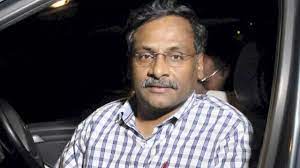
The Supreme Court, in a significant ruling, declined to stay the acquittal of former Delhi University professor GN Saibaba and five others, who were accused of having links with Maoists and charged under the stringent anti-terror law UAPA (Unlawful Activities (Prevention) Act). This decision by the apex court comes after the Nagpur bench of the Bombay High Court acquitted all six accused, citing a lack of evidence linking them to any terrorist activities.
During the proceedings, the Supreme Court rejected an oral plea by the Maharashtra government for an expedited hearing of its appeal against the verdict of the Bombay High Court’s Nagpur bench. Justices BR Gavai and Sandeep Mehta, presiding over the bench, emphasized that there was no urgency in overturning the acquittal, stating that they found the Nagpur bench’s judgment to be “very well-reasoned.”
Highlighting the thoroughness of the legal process, the Supreme Court noted that the accused had been acquitted twice by different benches. In 2022, the High Court had ruled that valid sanction had not been obtained to prosecute Prof Saibaba under UAPA. Last week, the Nagpur bench echoed similar sentiments, finding no evidence linking the professor or the others to any terrorist acts and raising doubts over the alleged “seizures” claimed by the state police.
Quoting the recent judgment, the Supreme Court underscored the failure of the prosecution to establish the case against the accused beyond reasonable doubt. The court deemed the prosecution’s evidence null and void, citing a lack of legal seizure or incriminating material against the accused under UAPA.
In light of these findings, the Supreme Court set aside Prof Saibaba’s sentence, marking the culmination of a legal battle that spanned nearly a decade since his arrest in 2014. Justice Mehta described Saibaba’s acquittal as “hard-earned,” acknowledging the challenges he faced during his incarceration.
Responding to his release, Prof Saibaba expressed a desire for reinstatement and compensation for the years lost while in custody. He reflected on his ordeal, describing it as a profound test of endurance akin to “agni pariksha” (trial by fire), emphasizing the need for justice and restoration of his rights.
As the legal saga surrounding Prof Saibaba’s case draws to a close, questions arise regarding accountability and justice within the criminal justice system, underscoring the importance of upholding due process and safeguarding individual liberties.
Sources By Agencies

